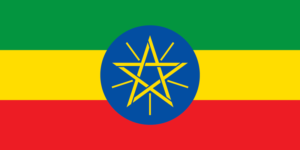
Reversal in Bermuda
In May 2016, Bermuda’s Supreme Court ruled same-sex marriage to be legal. Now, only nine months later, the island has banned it.
Here’s what happened. Last year, residents voted against same-sex marriage in a referendum. Then came the Supreme Court ruling, which legalized it. Bermuda’s legislature responded by drafting a bill which would ban it anyway. In December, Parliament adopted the bill, called the Domestic Partnership Act. Last week, John Rankin, the governor, signed it into law.
To be clear, the Domestic Partnership Act makes it so that same-sex marriage isn’t legal. But it does allow same-sex couples to be recognized as domestic partners. Also, the eight same-sex marriages that took place in Bermuda between May 2016 and now will remain legal. Nevertheless, this is a big step backward for advocates of LGBTQ rights.
Bermuda is actually a British territory. Same-sex marriage is legal in Britain, Scotland, and Wales, though not in Northern Ireland. British territories, such as Bermuda, rely on Britain for their support and protection, but nevertheless, make many of their own legislative decisions.
Bermuda is a popular tourist destination. However, many travelers are now changing their plans in protest of the new law in a movement called #BoycottBermuda.
What Do You Think?: Many people see equal same-sex marriage rights as fundamental human rights. Do you think the public should have the right to vote on human rights issues? Why or why not?
Olympic Athletes Face Unexpected Threat
This winter has been a bad one for the flu here in the United States. Chances are, you or someone you know has already been affected.
But as the Winter Olympic Games begin in Pyeongchang, South Korea, they too face an outbreak of viral disease: norovirus.
Norovirus is also known as “cruise ship virus” or “winter vomiting flu.” It is extremely contagious and is spread by close contact with people who have it. You can also get it from contaminated food, water, or surfaces. Symptoms include vomiting, diarrhea, and abdominal pain. No specific medical treatment is required to deal with the disease.
But the rate at which it is spreading is very alarming. The outbreak was first announced last Tuesday. Just two days later–on the eve of the opening ceremony–the number of cases had risen from 32 to 86. By Saturday, the total was up to 158.
As of Saturday, no athletes had tested positive for the disease, which has mainly affected security personnel. Olympic organizers have tried to keep the athletes safe by quarantining about 1,200 security staff. The military has been called in to replace them. Volunteers have also distributed hundreds of bottles of hand sanitizer. Anyone going into the cafeteria in the athletes’ village is required to sanitize their hands before going near the food. There are also informational posters at every Olympic venue, reminding people in multiple languages to wash their hands and to cover when they cough.
Dig Deeper Create a line graph showing the number of norovirus cases at the Olympics on Tuesday (32), Thursday (86), and Saturday (158). Based on your model, predict how many people could be expected to come down with the disease by Monday. Use Internet resources to see if your prediction was correct.
Ethiopia Frees Prisoners
Have you ever participated in a political march or protest? Here in the United States, these demonstrations are our right under the Constitution. But in other countries, such as Ethiopia, this isn’t always the case.

In fact, Ethiopia often comes under worldwide criticism for jailing people who speak out. The government claims that these demonstrators are a national security threat. But human rights groups disagree. Mass protests broke out in Ethiopia’s Oromia and Amhara regions in 2015, where people spoke out against political silencing and human rights violations. Since then, hundreds of protestors have been killed. Tens of thousands more have been jailed.
However, in the face of pressure from the rest of the world, the Ethiopian government has released almost 6,000 of these prisoners since last month. Last week, they announced plans to release 746 more. Among the list of inmates eligible for pardon are journalists and politicians. Their names have been forwarded to the president, Mulatu Teshome, who has the power to grant them a pardon. The government will also be closing the Maekelawi detention center in the nation’s capital, Addis Ababa, which has been criticized for mistreatment of prisoners and the use of torture.
Many human rights groups argue that while these changes are a step in the right direction, they don’t go nearly far enough. Many reforms, such as allowing peaceful protest and unblocking the Internet, are still necessary for Ethiopia.
What Do You Think? Should people have the right to speak out peacefully against their government? What about if their speech poses a threat to the government? Write a short paragraph explaining your point of view.
Looted Art Finds “Home” in Louvre
During World War II, when Germany occupied France, thousands of pieces of artwork were stolen by the Nazis. Thousands more were sold by Jewish families as they scrambled to gather enough money to flee the country. The vast majority of these artworks are still considered “lost” or “orphaned,” having never been returned to their rightful owners. In fact, out of an estimated 100,000 French artworks stolen by the Nazis, only 61,000 were returned to France after the war. Of these, only 45,000 were ever claimed by their rightful owners.
The French government kept 2,143 of the pieces. These are placed in a special inventory and displayed in museums. Currently, 807 of them reside in the Louvre. Up until now, these artworks have been displayed in the museum alongside the rest of the artwork, with just a small note explaining their origin. But now, the Louvre has given them a dedicated, permanent two-room space all their own.
However, many critics have complained that this effort doesn’t go far enough. Many people feel that the sign explaining the rooms isn’t enough and that the plaques underneath the paintings don’t go deeply enough into the story of their origin. The Louvre plans to put up a large banner soon in order to address these concerns.
Other people worry that giving the artworks a permanent home in the museum isn’t appropriate and that more should be done to try to return them to their rightful owners instead. The French government and Louvre curators examine the artwork, comb through records, and even enlist genealogists to try to track down the heirs.
